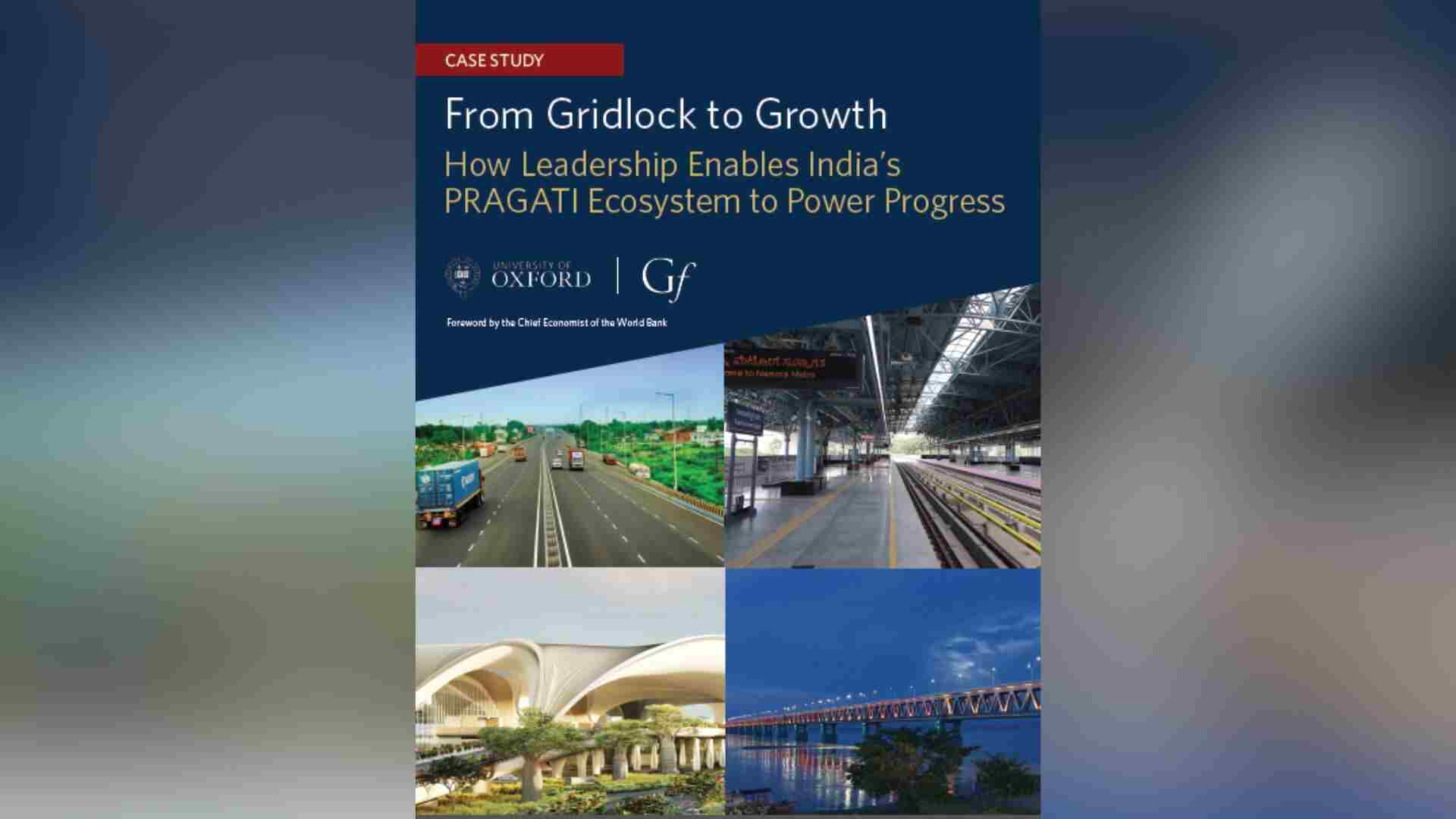New Delhi: A just released case study done by the University of Oxford has revealed the significant impact and the transformation brought in India’s governance landscape with the introduction of the Pro-Active Governance and Timely Implementation (PRAGATI) platform that was launched in 2015 by Prime Minister Narendra Modi.
The platform, as per the study that has a foreword from the Chief Economist of the World Bank , found that while tackling some of India’s most challenging infrastructure and social development projects, by the end of June 2023, PRAGATI had reviewed 340 projects worth INR 17.05 lakh crore ($205 billion), breaking bureaucratic gridlocks, resolving delays, and fostering cooperative federalism. The 54 pages report, divided into 7 chapters, has highlighted how Modi and his team brought in a system to improve the governance and administration, especially those related to big projects.
The recently published report, “From Gridlock to Growth- How leadership enables India’s PRAGATI ecosystem to power progress” has been co-authored by Soumitra Dutta of the University of Oxford’s Said Business School and Mukul Pandya, a fellow at the same institution, while analysing PRAGATI’s progress over its nine-year journey. The report, based on qualitative research, highlights the platform’s role in fast-tracking stalled projects and ensuring their completion, while offering lessons for governance globally.
One of the platform’s most striking success stories is the Bogibeel Bridge in Assam. This rail and road bridge over the Brahmaputra River had languished since construction began in 2002 due to land acquisition challenges and extreme weather. PRAGATI’s inclusion in 2015 marked a turning point. With Prime Minister Modi personally reviewing the project and senior officials held accountable, work accelerated rapidly. By 2018, the bridge was complete, transforming connectivity for thousands in Dhemaji district, who had previously relied on unreliable and treacherous boat services.
Similarly, was the case in Jharkhand, where the North Karanpura Thermal Power Plant had been stalled for years due to unresolved land lease agreements and disputes between stakeholders. PRAGATI’s intervention expedited negotiations, allowing construction to progress. Today, the plant supplies electricity to millions while creating jobs, ensuring that the benefits of development reach local communities.
The Bengaluru Metro Rail Project has also been cited as another telling example of PRAGATI’s effectiveness. Delayed by approval bottlenecks, the project saw significant progress after it was reviewed under the platform. By streamlining processes and integrating state and central authorities, PRAGATI not only accelerated the project’s timeline but also ensured that urban commuters in Bengaluru gained access to a modern transit system sooner.
In Maharashtra and Gujarat, the Dahisar-Surat section of National Highway 8 faced environmental hurdles. A 1.5 km stretch passing through the Sanjay Gandhi National Park had drawn opposition from wildlife authorities. The project was delayed until PRAGATI facilitated a compromise in 2017, enabling the state wildlife board to approve the plan with added measures to protect the park’s wildlife. This resolution allowed the highway expansion to proceed, addressing both environmental and logistical concerns.
As per the report, beyond infrastructure, PRAGATI has played a pivotal role in advancing social sector programs. The Jal Jeevan Mission, which aims to provide tap water to every rural household, saw its implementation accelerated after coming under the platform’s purview. In 2019, only 17 percent of rural households had access to tap water. By early 2024, that number had risen to 74 percent, a testament to PRAGATI’s focus on timely delivery and inter-agency coordination.
Similarly, the Swachh Bharat Mission, launched to eliminate open defecation, benefited from PRAGATI’s oversight. With over 100 million toilets built in just five years, the program has not only improved sanitation but also reduced public health risks, particularly for women and children.
The Udhampur-Srinagar-Baramulla Rail Link in Jammu and Kashmir is another example of PRAGATI’s transformative power. This rail project, delayed for years, gained momentum after the platform intervened. Today, it connects the Kashmir Valley with the rest of India, providing a lifeline for socio-economic development in the region.
The study found that PRAGATI’s reliance on digital tools has been central to its success. The platform integrates real-time data, drone feeds, and GPS tracking to provide live updates on project progress. For instance, during the construction of the Dahisar-Surat highway, GPS-enabled tracking of construction equipment helped identify inefficiencies, enabling timely corrections. Similarly, video conferencing and centralized data dashboards have reduced dependency on outdated reporting systems, improving transparency and accountability.
The report also emphasizes PRAGATI’s broader economic impact. Studies by the Reserve Bank of India and the National Institute of Public Finance and Policy estimate that every rupee spent on infrastructure yields a GDP return of 2.5 to 3.5 rupees. By expediting projects, PRAGATI has minimized cost overruns and ensured that economic benefits are realized sooner. Improved connectivity through roads, railways, and airports has expanded access to education, employment, and healthcare for millions.

